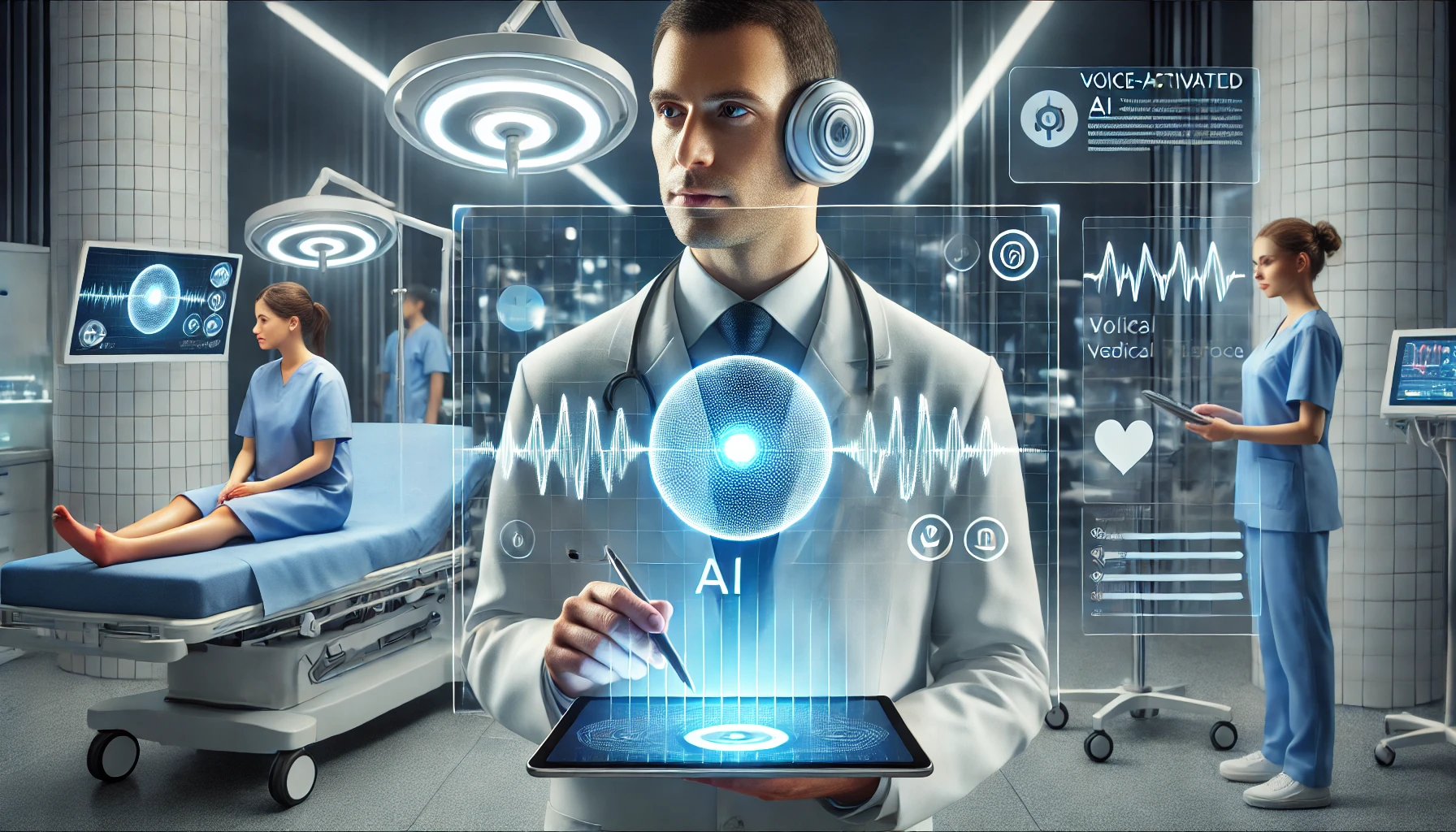
Microsoft Unveils Dragon Copilot: How This Voice-Activated AI is Transforming Healthcare
Imagine a world where doctors spend less time typing up notes and more time actually caring for patients. That future might be closer than we think, thanks to Microsoft’s latest innovation—Dragon Copilot. This voice-activated AI tool is designed specifically for healthcare professionals, promising to streamline administrative tasks and allow doctors to focus on what matters most: patient care.
Microsoft’s unveiling of Dragon Copilot is a major step forward in the use of artificial intelligence in medicine. But what exactly does it do, and how will it impact both doctors and patients? Let’s break it down.
What is Dragon Copilot?
Dragon Copilot is a new AI-powered voice assistant designed to help doctors handle documentation, access patient information, and interact with electronic health records (EHRs) more efficiently. Built with advanced speech recognition technology, it allows doctors to dictate notes, retrieve patient histories, and even draft prescriptions—all using voice commands.
While AI tools in healthcare aren’t new, Dragon Copilot stands out because of its real-time responsiveness, language processing capabilities, and seamless integration with hospital systems. This technology isn’t just about convenience; it’s aimed at reducing burnout, improving accuracy, and ultimately allowing doctors to provide better care.
How Does Dragon Copilot Work?
Dragon Copilot operates as a voice-activated assistant that listens to a doctor’s spoken instructions and converts them into structured medical documentation. With AI-driven natural language processing, it can:
- Transcribe patient encounters in real time, so doctors don’t have to manually type everything.
- Integrate with EHR systems, allowing physicians to update records hands-free.
- Assist in diagnosing conditions by pulling up relevant medical information based on voice prompts.
- Help draft treatment plans, prescriptions, and referrals quickly and accurately.
This kind of automation can significantly cut down the hours doctors spend on paperwork, allowing them to dedicate more time to direct patient interactions.
Why Does Healthcare Need AI Like This?
Doctors often spend just as much time on documentation as they do with patients. Studies show that many physicians dedicate hours after their official workday to finishing notes and updating records. This “after-hours” workload contributes to burnout, frustration, and ultimately impacts the quality of care.
By automating much of the administrative burden, Dragon Copilot can help in several ways:
- Reducing Burnout – With less time spent on tedious tasks, doctors can feel more engaged and less overwhelmed.
- Improving Patient Care – More face-to-face time with patients leads to better diagnoses, stronger doctor-patient relationships, and improved outcomes.
- Enhancing Accuracy – Voice-activated documentation minimizes errors and omissions often caused by manual input.
- Speeding Up Workflow – Instant data retrieval and automated note-taking speed up workflows, allowing doctors to see more patients without feeling rushed.
How Does Dragon Copilot Compare to Existing Technology?
Voice recognition technology in healthcare is not entirely new—Nuance (a Microsoft-owned company) has long been a leader in medical transcription software. However, Dragon Copilot takes things further with more advanced AI-powered capabilities.
Unlike previous dictation tools, Dragon Copilot isn’t just a transcription service. It’s an interactive assistant that understands context, suggests relevant information, and integrates more deeply into medical records systems.
For example, instead of just converting spoken words into text, it can remind a doctor of a patient’s allergy history when prescribing medication or flag inconsistencies in patient records that may require further review. This level of intelligence makes it a game-changer in clinical settings.
Is Dragon Copilot Secure?
Given that medical data is highly sensitive, security is a major concern when introducing AI into healthcare. Microsoft has emphasized that Dragon Copilot complies with all relevant healthcare regulations, including HIPAA, to ensure patient information remains secure and private.
The AI processes voice data in real time, meaning it doesn’t rely on permanently storing recordings, reducing privacy risks. Additionally, Microsoft’s cloud security measures ensure that data remains protected from unauthorized access.
The Future of AI in Healthcare
Dragon Copilot is just one example of how AI is reshaping modern medicine. As voice-activated AI continues to evolve, we could see even more advancements in areas like:
- AI-driven diagnostics that assist doctors in identifying conditions faster.
- Predictive analytics that anticipate a patient’s needs based on historical data.
- More personalized treatment recommendations using machine learning algorithms.
While AI won’t replace doctors, it will serve as a powerful ally, handling repetitive, time-consuming tasks so healthcare professionals can focus on what they do best—caring for people.
Final Thoughts
Microsoft’s Dragon Copilot represents an exciting step forward in the use of AI for healthcare. By reducing the administrative burden on doctors, improving documentation efficiency, and enhancing patient interactions, this voice-activated assistant has the potential to transform the way healthcare professionals work.
While it’s still early days, tools like Dragon Copilot highlight the incredible potential AI has to improve healthcare. As technology continues to develop, we can expect even greater innovations that make healthcare smarter, more efficient, and, most importantly, more patient-centered.
For now, Dragon Copilot is offering doctors a much-needed helping hand—one that could redefine healthcare workflows for years to come.


